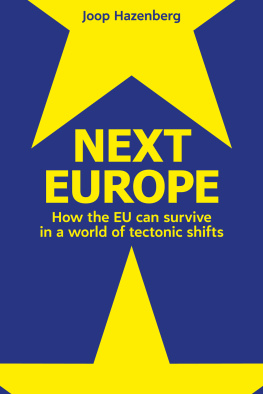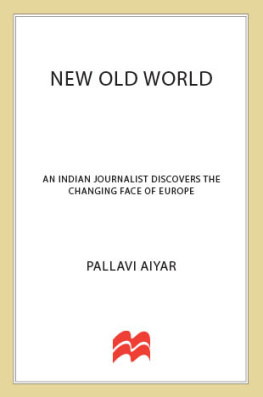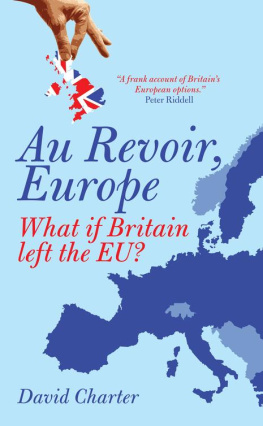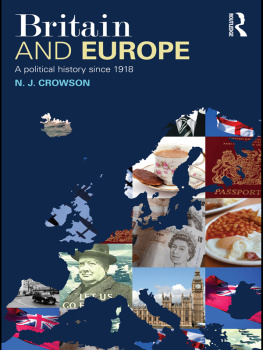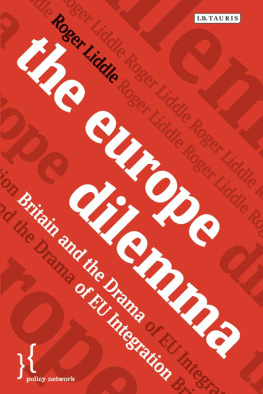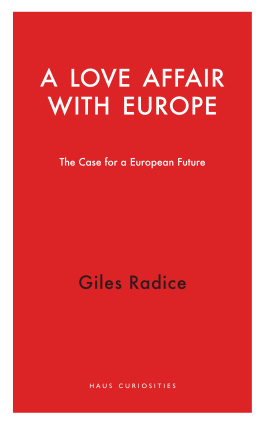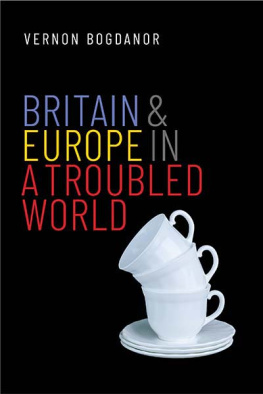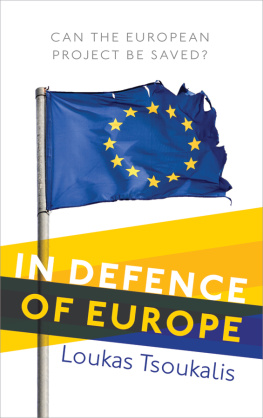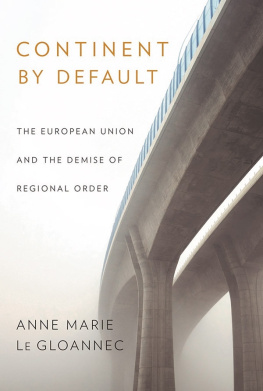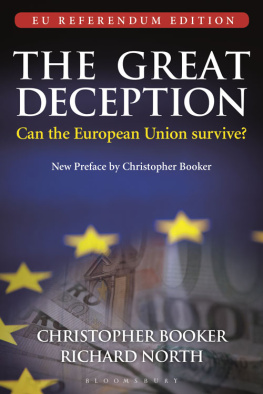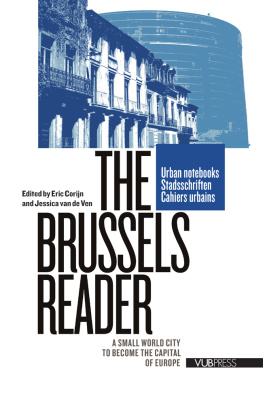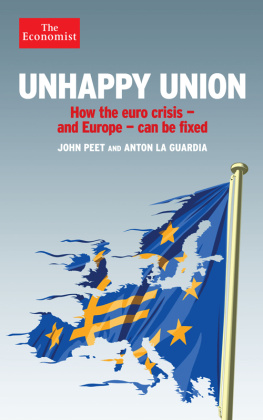Joop Hazenberg
Next Europe
How the EU can survive in a world of tectonic shifts
First edition (e-book) September, 2014
2014 Joop Hazenberg
E-book production: Fosfor Self-publishing
Cover design: Zinnebeeld
ISBN 9789462251236
Contact details Joop Hazenberg:
EU Watcher: www.euwatcher.eu
e-mail: contact@euwatcher.eu
I dedicate this book to Pim de Kuijer, diplomatic activist, shot down above Ukraine on 17th July, 2014. Jumpa lagi!
Preface
June 2014: A light drizzle falls from the grey skies over Brussels. Police officers in front of the office are preparing the road for the arrival of President Barack Obama, as tomorrow the G7 summit will be held here. Russias membership has been suspended after President Vladimir Putin invaded the Crimea in March.
In other news today: youth unemployment has dropped in Ireland, from 28% to 24% in just one year. Tourism spending by Chinese travellers rose by one quarter in 2013 - they are now the biggest customer in the global tourism sector. The British Prime Minister David Cameron threatens to leave the EU. Spanish King Juan Carlos announces his abdication. Anti-European parties negotiate to form a group within the newly elected European Parliament. A French jihadist who went to Syria is arrested for shooting four people at the Jewish Museum in Brussels. Poland asks for a US Army base as a security measure against Russia. Brazilians are unenthusiastic about the upcoming Football World Cup, as many stadiums are not yet finished and huge protests have taken place instead of pre-parties.
The weather forecast for this weekend in Brussels: 26 to 29 degrees, chance of thunderstorms, continuing depression in the European population, little prospect of a thaw between citizens and the European Union.
Outside Europe, the outlook is very different. Russia flexes its muscles in Ukraine and pivots to the East by agreeing a huge gas deal with China. President Putin launches the Eurasian Economic Union to create a single market la Europe. Chinese industry has picked up after a slow period, boosting the stock market. India chooses a powerful new leader, Narendra Modi, who can remain in office for a decade and has the ambition to develop his country much further. In one stroke with a statistical correction, Nigeria becomes Africas biggest economy. On a Turkish news website, the most-read article is an interview with Star columnist Mahir Kaynak, who says the European Union will cease to play a global role, while Turkey will become a political world power.
Stagnation versus ambition. Fear against hope. Decline contra growth. The news reports of just one day clearly reveal huge tensions and shifts in the world. What will this mean for our future? Is Europe on its way out and are we bound to lose the race with the BRICS?
This book gives a compelling answer to these two crucial questions as I take you on a journey through the recent history and current state of Europe. We will venture to the East and the South, assess the potential, threats and weaknesses of the emerging giants. And we will look forward to the local, regional and global challenges in the 21st century, including an overview of what needs to change in Europe to allow our continent to thrive in an age of uncertainty and power shifts.
Much of the analysis of Next Europe is not new, nor are the proposed reforms.Rather it is an accessible and readable overview of the world in which we live today and tomorrow. Next Europe is a fresh salad with a spicy dressing. I have gathered the most relevant works on the most important topics (eurozone crisis, East-West relations, global governance), interviewed leading experts and pondered on my own experience with Europe and the world.
We are bombarded with explanations for Europes state of affairs or the rise of China, but what was missing was an overall analysis of the direction the world is taking. This book is meant to take away the feeling of unease that looms over our future. I also wanted an answer to the question of whether there is a place for Europe on the worlds stage in the future. Essentially that answer is: Yes, but
It is partly true that Europe is in a mess. At the same time, so are the BRICS, and so is America. Lets find out why.
PART I:
CURRENT EUROPE
1
A continent mired in crisis and morose
Lets start our journalistic journey with setting the scene of Europe in 2014:
The EUs official motto is unity in diversity. Together we stand strong even though we come from different backgrounds. Nowadays you could say that Europeans are united - but often only in their opposition to the EU, in their collective mistrust of the institutions in Brussels and their fear of globalisation. What are our prospects for the future? Two in three Europeans think the EU is moving in the wrong direction - those in southern Europe in particular display a lot of pessimism. In the Netherlands, trust in the EU has gone down from 50% to 28%, in just five years.
When in Amsterdam, you can hear higher-educated, internationally-active people state that Europe is just one big fuck-up and it doesnt add any value to their life or to the Netherlands. Why would they bother to vote for the European Parliament, they wonder, since it doesnt have any real power.
If cosmopolitan Dutchies are already so sceptical, it bodes ill for Project Europe. Pew Research identified the gloomy prospects in a survey in 2013, when it polled citizens attitudes towards Brussels from across Europe. The European Union is the new sick man of Europe, concluded Pew, saying the EU stands in disrepute across the continent. The effort over the past half century to create a more united Europe is now the principal casualty of the euro crisis.
The eurozone crisis may have severed the legitimacy issue, but Europes loss of direction has deeper roots. Unemployment was already high before the banks fell, solidarity between Europeans fragile, the rise of Asia already on track. Europeans started turning their backs on governments long ago. Dynamism seems to have been siphoned out of Europes economy in recent decades. In this sense, the eurozone crisis functions as an accelerator: People are more and more fed up with the EU, from the payments to the South to the strict rules of the North. They are fed up with unemployment, piles of debt and political crises at home. Europeans need perspective and the current class of politicians cant provide them with appealing ones.
Europes fear for the future is understandable. We are in a mid-life crisis and have so much to lose in terms of economic strength, wealth and welfare, culture and even identity: Where is our continent heading? Are our nation-states no more than helpless shells, thrown upon sharp rocks by continuing waves of globalisation? What society will our children grow up in? Why do politicians seem unable to make sovereign choices about the direction of economy and society?
A follower on Twitter claimed to have the solution for our troubles. We need someone who destroys the EU to give countries their freedom and sovereignty back, @taraknl wrote to me after I stated that the EU is in a deep crisis and needs a better leader than the new Commission President Jean-Claude Juncker. The 15 experts on the EU who were interviewed for this book have suggested less drastic solutions to turn the tide. But most of them are also fiercely critical of how Europe is run nowadays.
The European dream, of ever more integration, peace and prosperity, is dead. Since the eurocrisis broke out in 2010, too many people have landed in a nightmare that doesnt seem to end. Especially the young. More than five million under 25-year-olds are unemployed, and many have been in this situation for years, leading to real depression and increasing numbers of suicides. In total, a whopping 14 million youngsters in Europe are classified as NEETs: not in education, training or employment. They are on their way to becoming a lost generation, instead of the next generation. The jobless youth is now migrating in masses not only to richer parts of the EU, but also to former colonies such as Mexico, Angola and Brazil.

